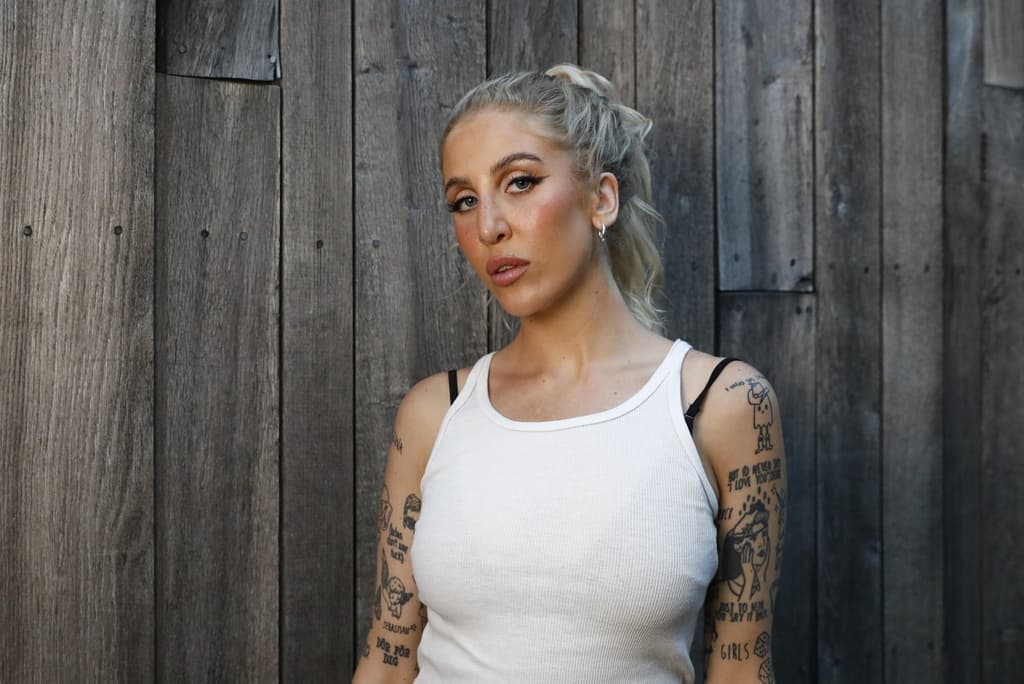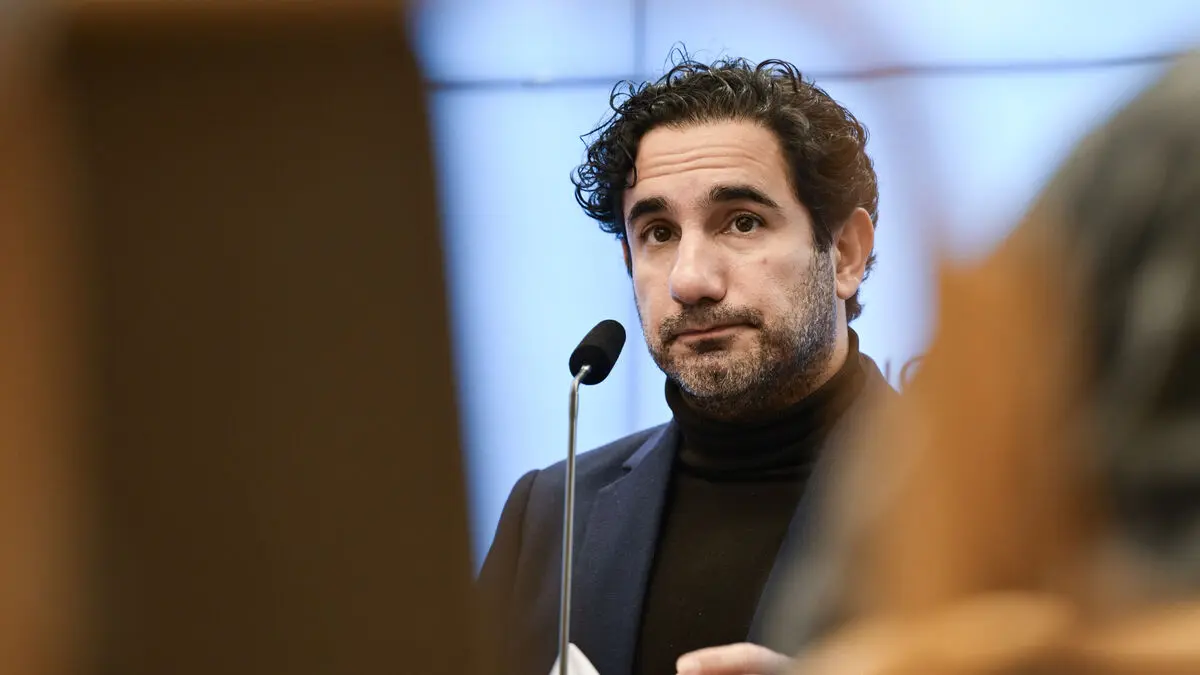During the summer, several pop artists have released songs on the theme. One is Peg Parnevik, in the song "Hus utan speglar" which deals with complexity and accepting oneself.
"But in my house without mirrors, I would dress however I want, would eat a little more", goes the refrain.
Parnevik has been open about her experiences with eating disorders, but it's the first time she's releasing a song about the subject.
It wasn't obvious to release it, it felt so private and heart-wrenching, but that's also when the songs become the best, she says.
The song came from a feeling of frustration over constantly shifting body ideals.
As soon as you think you like yourself and your body, there's something new you have to adapt to. When we wrote it, we talked about how it would be if you didn't have time to check yourself in the mirror.
"Hate playing it live"
During the summer, Parnevik has been on tour, and despite "Hus utan speglar" becoming a fan favorite, it's been tough to play live.
I've said that I hate playing it live. I can't look at anyone, and almost every time I've broken down.
Other examples of how eating disorders and the relationship to one's own body are portrayed in pop music are Billie Eilish's song "Skinny", and Lorde's verse on Charli XCX's song "Girl, so confusing".
There, Lorde sings that she's "waged war" against her body and tried to starve herself to become thinner.
"You're expected to be personal"
The New York Times calls it one of pop's last taboos, but according to cultural journalist Alexandra Sundqvist, songs about the body and ideals are not new.
It's rather part of a larger movement in pop music, where the body and the conflicting feelings it comes with have taken more space, she says, and means that artists today are expected to be relatable, both on stage and off, which is reflected in the music.
Autofiction has ruled the pop world for a long time now. You're expected to be authentic and personal in your lyrics, or at least give the impression that you are.
One reason why the subject gets to take place in music, Peg Parnevik believes, is that body activism is no longer seen as trendy.
A few years ago, "body positivity" was on top, then everyone wanted to look like Kate Moss again. I think many artists are tired of showing a facade. Most people feel this way, and we need to be able to talk about it in a way that's not so dramatic.
Billie Eilish:
In the song "Skinny", Eilish sings that she's told she looks better "just because I got skinny".
"But the old me is still me, and maybe the real me, and I think she's pretty", she sings.
Charli XCX:
In "Rewind" from her latest album "Brat", Charli XCX sings that she wishes she could go back in time to when she wasn't insecure, and that she can't stop thinking about her weight.
Taylor Swift:
Taylor Swift sings about her younger self in "You're on your own, kid" from 2022. "I hosted parties and starved my body", she sings.
Silverchair:
In 1999, the rock band released the song "Ana's song (open fire)", which dealt with lead singer Daniel Johns' struggle with anorexia. The song got a breakthrough and was seen as a reminder that not only women are affected by eating disorders.
The National Association against Eating Disorders. They have local associations in several locations and can answer questions and refer further.
Here, people who identify as girls can chat with volunteers.
https://atstorningschatten.tjejzonen.se/
Association that works to spread knowledge about eating disorders and self-harm.
If you're under 18, you can turn to a youth clinic, school health services, or child and adolescent psychiatry, BUP.
If you're over 18, you can turn to a health center, psychiatric clinic, or occupational health services.
It's important to seek care as soon as possible if you think you have an eating disorder, to be able to make an investigation and get the right care.
(Source: 1177)






